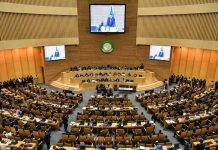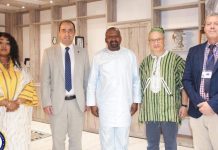Africa-Press – Sierra-Leone. Scientists from the Don State Technical University (DSTU) have suggested using low-cost insect processing products in the manufacture of fish food.
The researchers say that adding a supplement they have developed to the feed could reduce farm costs and help the fish to gain weight in a sustainable way. The results have been published in the journal Aquaculture and presented at an international scientific conference.
Feed is one of the greatest expenses facing farmers of any animal and the experts said that the quality of the food directly affects the animal’s growth, development and overall health.
Aquaculture feeds contain a lot of protein and fat that generally come from costly imported fishmeal and fish oil. According to the scientists, supplements from available and renewable feedstocks are now being actively studied to reduce the cost of the feed while maintaining its quality.
The larvae of the Black Soldier Fly (Hermetia illucens) are best suited to a growing fish’s diet since it is often used as a source of protein. The scientists based at the Don State Technical University (DSTU) in Rostov-on-Don, Russia developed a way to extract the fats required for fish feeds from the larvae and were able to build a comprehensive mathematical model for refining larvae.
According to Professor Maltseva: “Initial calculations revealed that a small to medium-sized trout farmer producing up to 20 tons [44,000lbs] of trout per year could cut 10 percent of the feeding costs when using the larvae fat. This is achieved through a greater fish survival rate and its mass with the same amount of feed.”
DSTU researchers pointed out that the new model is versatile and can be used for the larvae press studies, as well as for processing of other similar feeds.
The team of scientists are now looking into developing fodder supplements made of plant and animal-based products further with probiotic activity. The research is aimed “to ensure food security and the technological sovereignty of [Russia]”, the scientists emphasized.
DSTU is part of the Priority-2030 program (a federal-level program aimed at supporting Russian universities) within the Science and Universities national project.
For More News And Analysis About Sierra-Leone Follow Africa-Press






